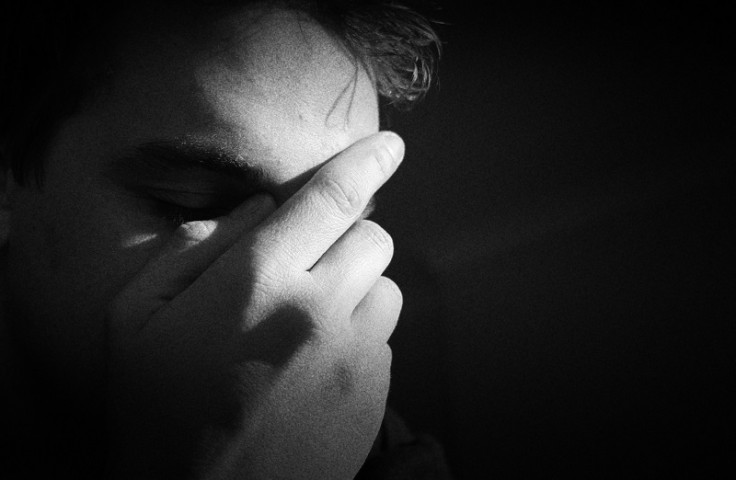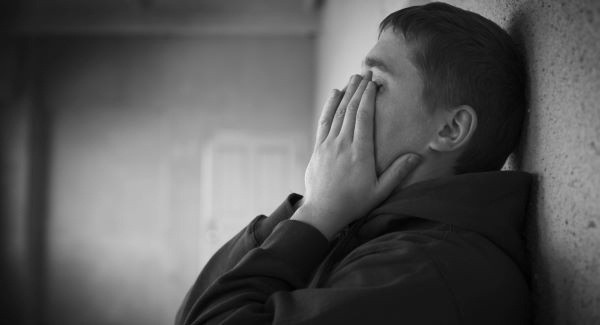Male suicide scandal: UK men are paying for a system that drives thousands of them to death

Suicide is the leading cause of death of British men under 50 years of age. Over a quarter (26%) of men who die between the ages of 20 and 34 take their own lives, and 13% of deaths among men aged 35 to 49 are self-inflicted. The figures for women are 13% and 5% respectively.
The state is responsible – through its actions and inactions – for many of the crises that lead men to kill themselves. As a class, men have long suffered high levels of reactive depression, the form brought on by distressing life events. This is driving the relentlessly high male suicide rate, rather than long-term mental health issues.
In 2014 the government published a report, Preventing suicide in England: First Annual Report on the Cross-government Outcomes Strategy to Save Lives. Virtually no interest (let alone concern) is expressed in the report at the remarkably high rate of suicide among men.
When politicians are pressed on the male suicide rate, they generally (and callously) attribute the problem to men's disinclination to seek help for mental health issues in times of crisis. Politicians are victim-blaming.
They know – or should know – the "mental health issue" is generally reactive depression and all too often the only support available to men is talking, which won't help those denied access to children after family breakdowns, or those denied support as victims of domestic violence, or who who are homeless...
The male:female suicide rate differential was 1.7:1 in 1983 and steadily rose over the subsequent 30 years, reaching 3.5:1 in 2013. The prime reason was a steep decline in the number of women committing suicide. Nobody has suggested there was a major improvement in women's mental health over the period.
Disadvantaging of males begins at an early age. Life outcomes for boys deprived of a father active in their lives tend to be poor and the state has long been the architect of the destruction of the nuclear family.
About two-thirds of secondary school teachers are women and state schools are failing large numbers of boys. One in four boys is labelled as having special educational needs.
William Collins, an important blogger on men's issues, has suggested female teachers often give girls preferential treatment in school, for example by giving them higher grades for the same quality of work. This may be why so many boys are demotivated at school; today, three out of five university students are female and 70% of medical students are women.

Collins has written about the "gender education gap", which emerged after the introduction of continuous assessment by teachers in 1987-88. The state education system is permanently blighting many boys' lives.
Huge amounts of taxpayers' money has been spent over decades 'encouraging' women into traditionally male-dominated professions, notably those relating to STEMM subjects (Science, Technology, Engineering, Mathematics and Medicine). The state is spending £30m "encouraging" women into engineering alone. Female engineering MSc students at Brunel are entitled to sponsorship of £22,750 denied to their male colleagues.
Taxpayers' money is not being spent "encouraging" men into female-dominated professions, although male unemployment has long been higher than female unemployment, and unemployment is known to be a major driver of male suicide, but not female suicide.
Two thirds of public sector employees are women, yet the Equality Act 2010 is designed to prioritise females over males in recruitment and promotion terms. It's termed "positive action" in the Act but it's positive discrimination in all but name.
Taxpayers' money is not being spent 'encouraging' men into female-dominated professions, although male unemployment has long been higher than female unemployment, and unemployment is known to be a major driver of male suicide, but not female suicide.
The Athena SWAN initiative is designed to preference women over men in appointments to research posts in STEMM subjects. This is a state-funded assault on men wishing to pursue scientific careers.
Following divorce, the suicide rate of men is nine times higher than the suicide rate of women. This is sometimes the result of financial devastation, but more often the result of denial of access to children.
The link between denying fathers access to children and reactive depression – and therefore suicide – is an obvious one. When in opposition, politicians promise fathers' rights groups they will resolve the problem once in office but renege on the promise once in power.
Intimate partner violence
My party, Justice for Men and Boys (J4MB) recently published a study by renowned US psychologist Martin Fiebert showing women are often as physically aggressive as men towards opposite-sex intimate partners, or more aggressive.
Yet some radical feminists will have you believe men use intimate partner violence (IPV) - or the threat of it - to control women as a class. This theory has long been discredited, most recently by British researchers Dr Elizabeth Bates and Dr Nicola Graham-Kevan.
J4MB submitted a 154-page report to the Home Office concerning the anti-male bias of public bodies and politicians with respect to IPV. This evidence is supported by an American study, which reported that when IPV-related suicides are added to IPV-related homicides, more men than women die as a result of IPV.
For more proof, look at the Mankind Initiative, the most prominent charity in the UK supporting male victims of IPV. The charity reports there are over 7,000 places in refuges in the UK for women and children, and 17 for men.
Men are less likely than women to report being victims of IPV and far less likely to have their partners charged with the offence. Men are reluctant to leave violent partners, often because they're concerned their children would be at additional risk and they'd never see them again (both are reasonable assumptions in many cases).
If abused men approach their local authority, they're told that if they leave their houses they'll be considered "intentionally homeless" and be denied social housing. IPV is a major route into homelessness for men and 87% of the "street homeless" are men. The average age of death of a homeless person is 47, as opposed to 77 for non-homeless people.
The criminal justice system is particularly brutal towards men and this appears to lead many to suicide. There are over 80,000 men in British prisons, and fewer than 4,000 women. Ministers talk only of the "need" to reduce the number offemale prisoners. William Collins has calculated that if male criminals were treated as leniently as female criminals, 68,000 men currently in British prisons wouldn't be there.
And who is funding the state that is assaulting the human rights of men and boys? Men, in the main, who pay 72% of income tax.
Mike Buchanan is the leader of the British political party Justice for men & boys (and the women who love them. J4MB is the only political party in the English-speaking world campaigning for the human rights of men and boys, which are assaulted by the actions and inactions of the state. You can follow Mike on Twitter @MikeBuchanan11.
The Samaritans provides a free support service for those who need to talk to someone. It can be contacted through its website or on 08457 90 90 90, 24 hours a day, 365 days a year (Republic of Ireland – 116 123), email jo@samaritans.org. Call charges apply.
The views expressed in this article do not necessarily reflect those of IBTimes UK.
© Copyright IBTimes 2025. All rights reserved.






















